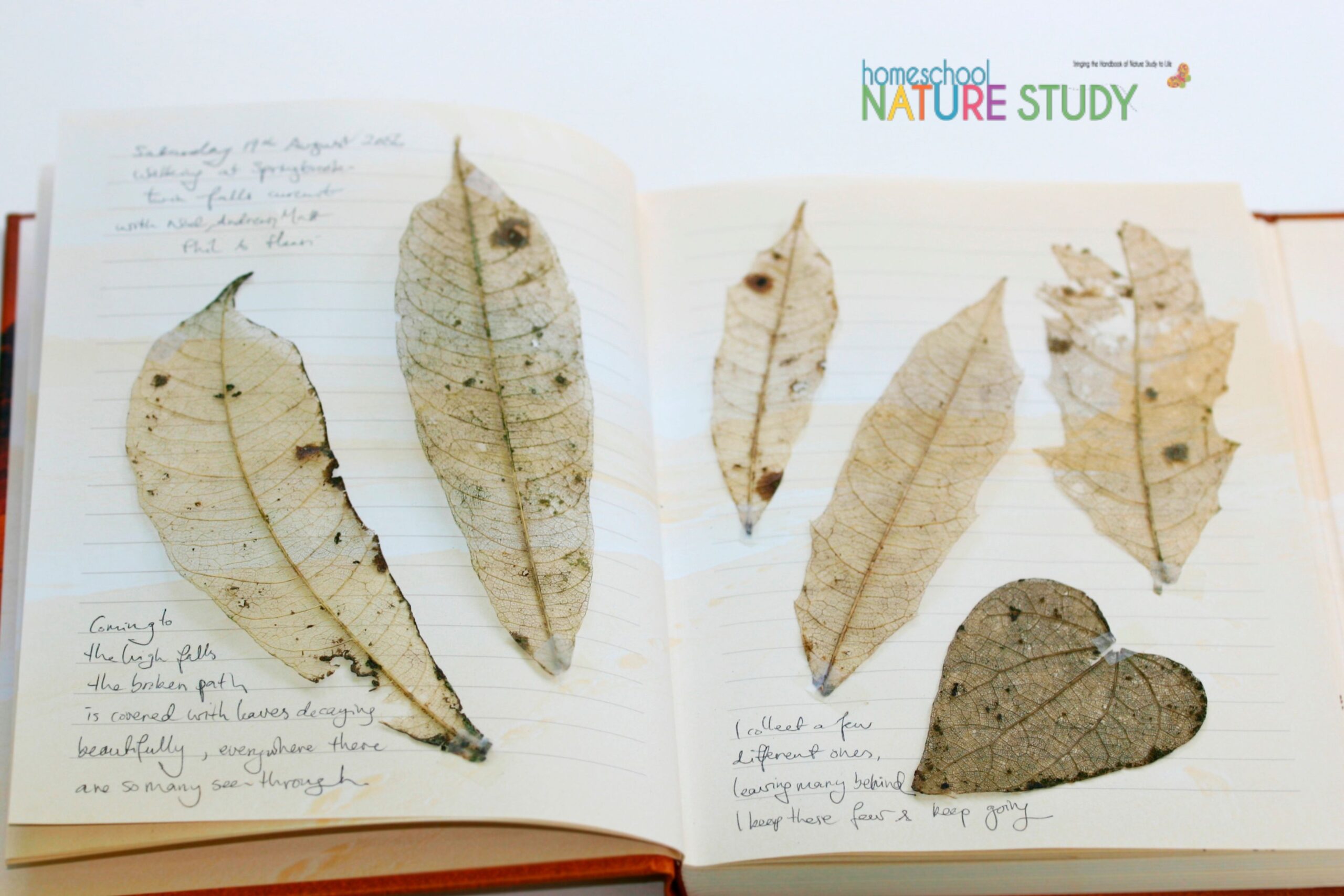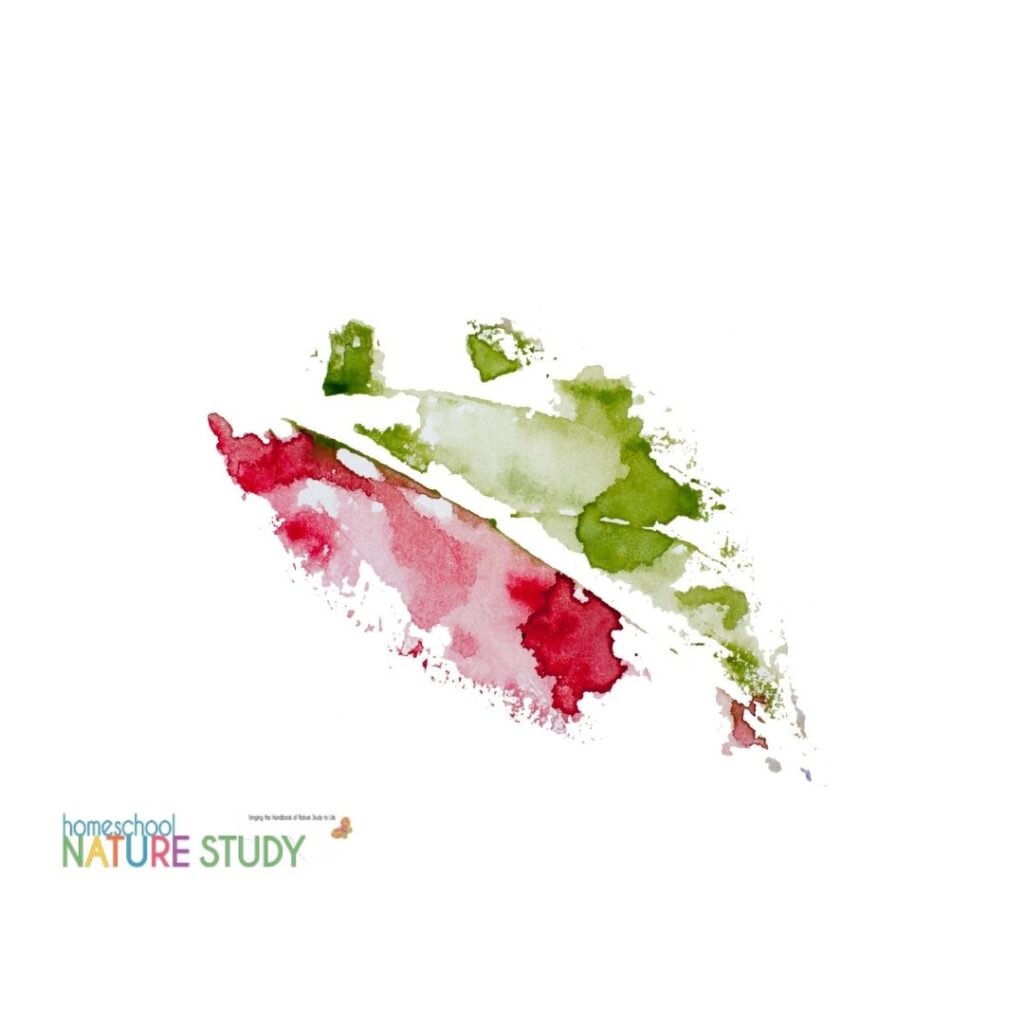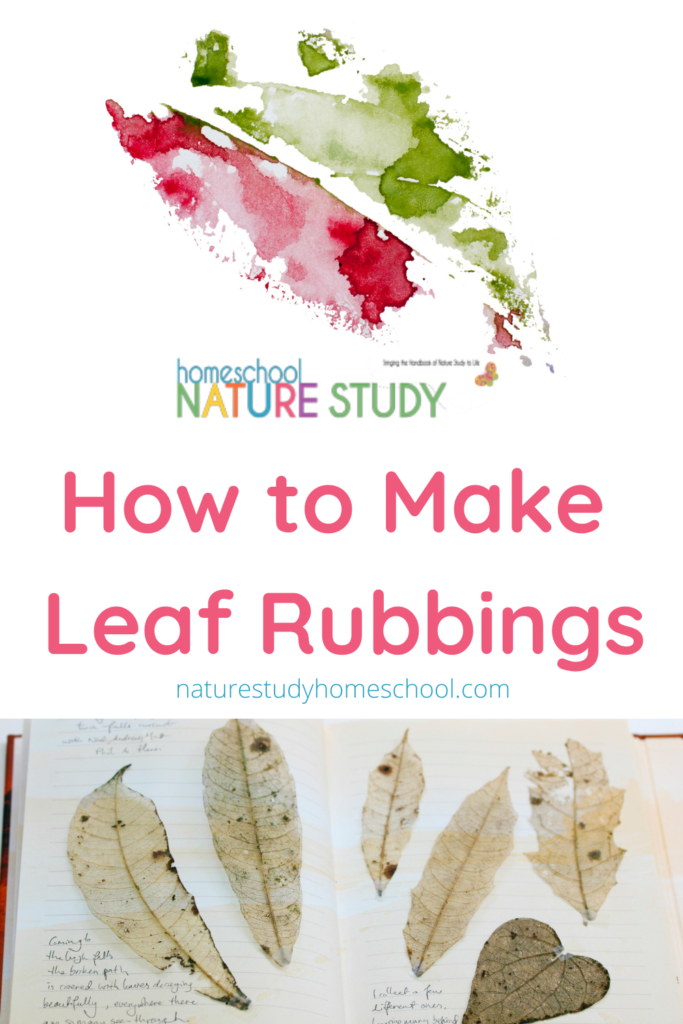
Taking the time to draw leaves helps you observe the details. For young children, a wonderful starting place for a homeschool leaf nature study is to make leaf rubbings.
When my children were young, autumn walks always included collecting colorful leaves. We might get home with handfuls of leaves in a rainbow of autumn shades. We would talk about the shapes and what tree each leaf came from or which ones were our favorites. Once home, we’d pull out crayons or markers and attempt to draw a few of the leaves on paper to be hung on the refrigerator or given as gifts to grandparents. Nature study was casual and enjoyable.
As they grew older and we would be out during our homeschool day, I would sometimes follow up with a more detailed nature study lesson using the Handbook of Nature Study or our tree field guide. The amount of information we would cover really depended on the children’s interest and my aim. By high school we were more deliberate in our autumn leaf studies using more scientific vocabulary and I expected them to create a more detailed nature journal as part of our more formal science lessons.
Learning about trees, leaves, autumn, and the neighborhood can build over many years and still seem to be just a part of learning about the world we live in and the trees that share the same space.
I love this quote from Anna Botsford Comstock:
“During autumn the attention of the children should be attracted to the leaves by their gorgeous colors. It is well to use this interest to cultivate their knowledge of the forms of leaves of trees; but the teaching of the tree species to the young child should be done quite incidentally and guardedly. If the teacher says to the child bringing a leaf, ‘This is a white-oak leaf,’ the child will soon quite unconsciously learn that leaf by name. Thus, tree study may be begun in the kindergarten or the primary grades.” Anna Botsford-Comstock

Leaf Homeschool Nature Study: How to Make Leaf Rubbings
I have many resources here on my website that will help your family learn about leaves, some for younger students and some for older and more advanced students. I’ve found that taking time to draw leaves makes you observe them closely and see the specific features each tree’s leaves involve.
I highly recommend starting with simple sketching and/or rubbing of leaves with younger children.
- You can watch my short YouTube video that shares some of my tips for drawing leaves, how to make leaf rubbings, and using a flower press for pressing leaves here: Tips for Drawing Leaves.
- You may wish to complete the Outdoor Hour Challenge that features collecting leaves. Click over and read how to complete a simple leaf study: Collecting Leaves.
- Watercolor crayons demonstration – Fall Leaf for the Nature Journal. I created this YouTube video a long time ago that shows how I use watercolor crayons in my nature journal. It makes me want to go gather some leaves and do this again in my nature journal!
- Making Leaf Prints with Ink: This activity is wonderful for older students to quickly create a leaf nature journal page using ink pads and leaves they collect.
- Image of the cover 9/15 NL
Now that autumn is here, I’m trying to embrace its beauty. We don’t have much “fall color” here in my part of the world but the little bit we do have will be appreciated and perhaps even make its way into my nature journal.
Members can look in the library for many more printable tree and leaf activities and notebook pages in the Trees course.
Join The Homeschool Nature Study Membership for Year Round Support
You will find hundreds of homeschool nature studies plus all the Outdoor Hour Challenges in our Homeschool Nature Study membership. There are 25+ continuing courses with matching Outdoor Hour curriculum that will bring the Handbook of Nature Study to life in your homeschool! In addition, there is an interactive monthly calendar with daily nature study prompt – all at your fingertips!

